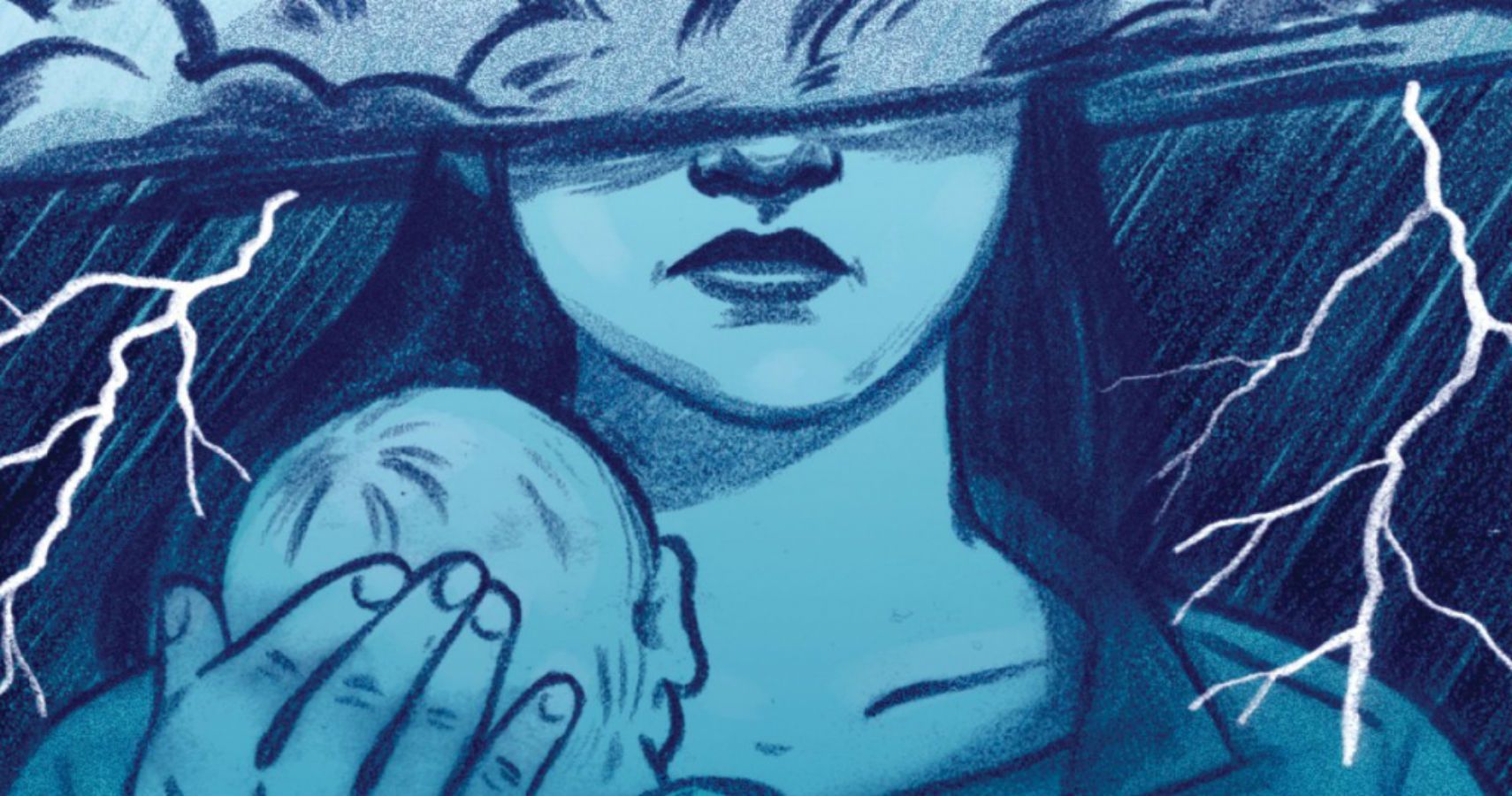Lying in bed starring at the ceiling I hear my husband say "shh, shh it's okay sweetie" he bounces and walks the halls with our two week old newborn. I literally cannot bring myself to help. I hear my baby crying, and yet I feel nothing. I watch the ceiling fan blades swish around in a hypnotic circle and pick my cuticles. I turn away from the noise in the hallway and wish silently that I had never gotten pregnant because all I can think about is how much I don't want to be a mom. Welcome to the nightmare that is Postpartum Depression.
This storm that we refer to as Postpartum Depression (PPD) can hit any new mom, it does not discriminate. It makes a new mom feel less than human. She wallows in a state of sadness, mourning her old life, wishing she wasn't a mom and terrified that she has just made the biggest mistake of her life. Is it any wonder that women experiencing this pain are disgusted with themselves, afraid of being deemed unfit to care for their child, and judged relentlessly by society who views every "good" mom as one who wants nothing but to cuddle their newborn from the moment they deliver?
RELATED: Here’s the Truth About Postpartum Depression
Like all other mental illnesses, there is an unwarranted stigma about PPD. No one would think twice if you sought out treatment for Pneumonia. Unfortunately, too many people feel uncomfortable seeking aid when it comes to treatment of a mental illness. Postpartum Depression is a classified mental illness that needs to be acknowledged and treated. Far too many women suffer in silence due to feelings of shame and humiliation. Many women wonder why me? Was I predisposed to get this because I am going to be a bad mom? ABSOLUTELY NOT. There is no one clear cut reason why women suffer from PPD, but research suggests it has to do with the drastic shifts in a women's hormones after giving birth.
When I say this illness is common... I mean common. Look at the statistics from postpartumdepression.org
- "Approximately 70% to 80% of women will experience, at a minimum, the ‘baby blues’. Many of these women will experience the more severe condition of postpartum depression or a related condition."
- "The reported rate of clinical postpartum depression among new mothers is between 10% to 20%."
- "One recent study found that 1 in 7 women may experience PPD in the year after giving birth. With approximately 4 million live births occurring each year in the United States, this equates to almost 600,000 postpartum depression diagnoses."
To be clear, having Postpartum Depression has absolutely zero to do with your potential for being a good mother. Unfortunately, the only time we hear much about this illness is when a mother harms her child, and the story gets plastered all over the news. The reality is that the symptoms related to Postpartum Depression range greatly. Very much like pregnancy, every women's experience is different. This mood disorder affects different women in different ways. According to the National Institute of Mental Health, the following are the most commonly reported symptoms of Postpartum Depression:
- Feeling sad, hopeless, empty, or overwhelmed
- Crying more often than usual or for no apparent reason
- Worrying or feeling overly anxious
- Feeling moody, irritable, or restless
- Oversleeping, or being unable to sleep even when her baby is asleep
- Having trouble concentrating, remembering details, and making decisions
- Experiencing anger or rage
- Losing interest in activities that are usually enjoyable
- Suffering from physical aches and pains, including frequent headaches, stomach problems, and muscle pain
- Eating too little or too much
- Withdrawing from or avoiding friends and family
- Having trouble bonding or forming an emotional attachment with her baby
- Persistently doubting her ability to care for her baby
- Thinking about harming herself or her baby.
RELATED: Postpartum Depression and the Baby Blues
While women are primarily the recipients of Postpartum Depression, men are at risk too. About 10% of men report symptoms associated with PPD. About half of the men whose partner is suffering though this disorder also face bouts of depression. Living with a partner who is disconnected from the early experiences of having a newborn at home is beyond challenging.
Treatment often consists of therapy, and or medication. Antidepressants may be prescribed to support women's mental state. Without treatment, PPD can last for months of years. This greatly affects the mother, and her ability to bond and connect with her baby. No one should have to go through the agony of PPD for fear of retribution from those who don't understand the disorder. No mother asks for this condition. No mother wants to feel like a zombie completely disconnected from their child. No mother wants to feel the shame and guilt associated with a disorder that prevents you from adequately taking care of your child.
Postpartum Depression is real, it's scary, it can happen to anyone, and it needs to be professionally treated. Looks of concern and pity can be daggers in the heart for mothers experiences PPD. Instead reaffirm that what they are feeling is very normal, and together you are going to figure out a way to secure treatment and healing.
SOURCE: Huffington Post, Postpartum Depression.org, Postpartum Depression Facts

